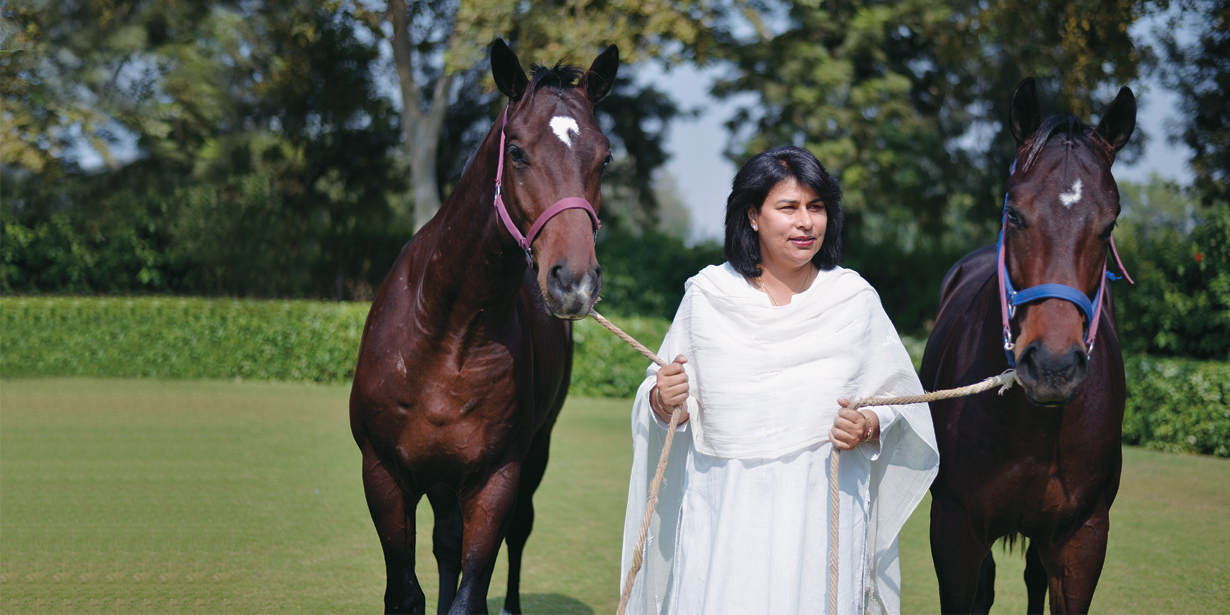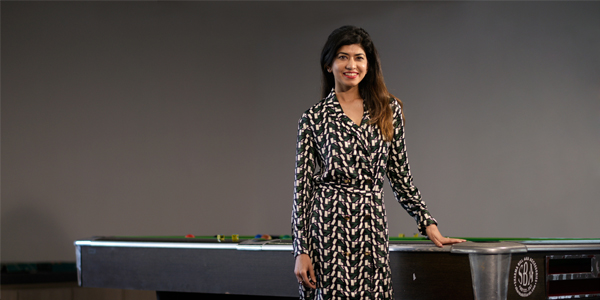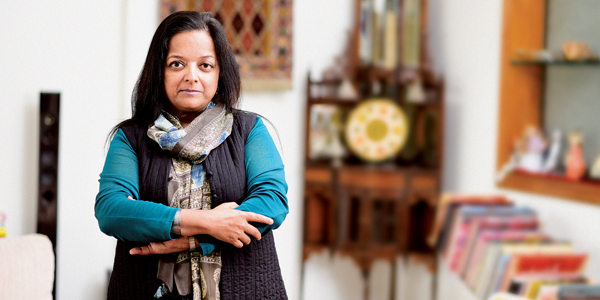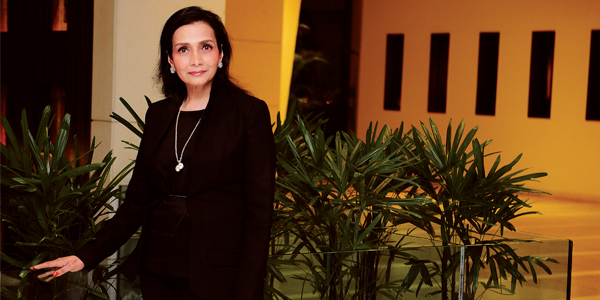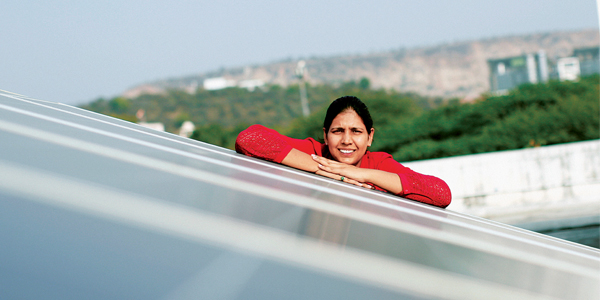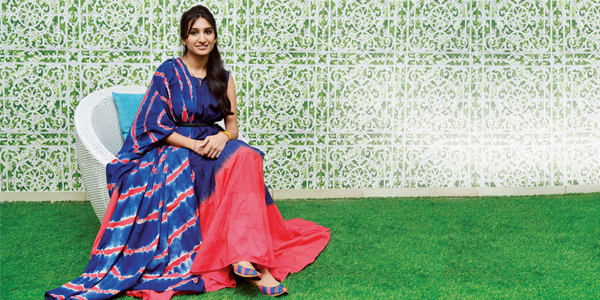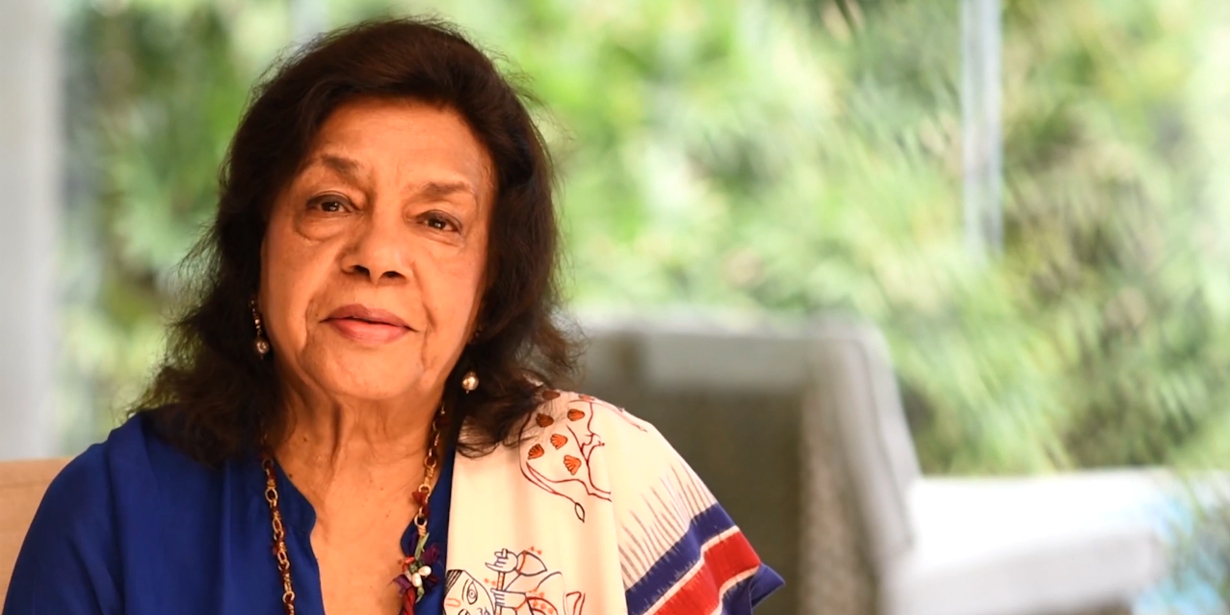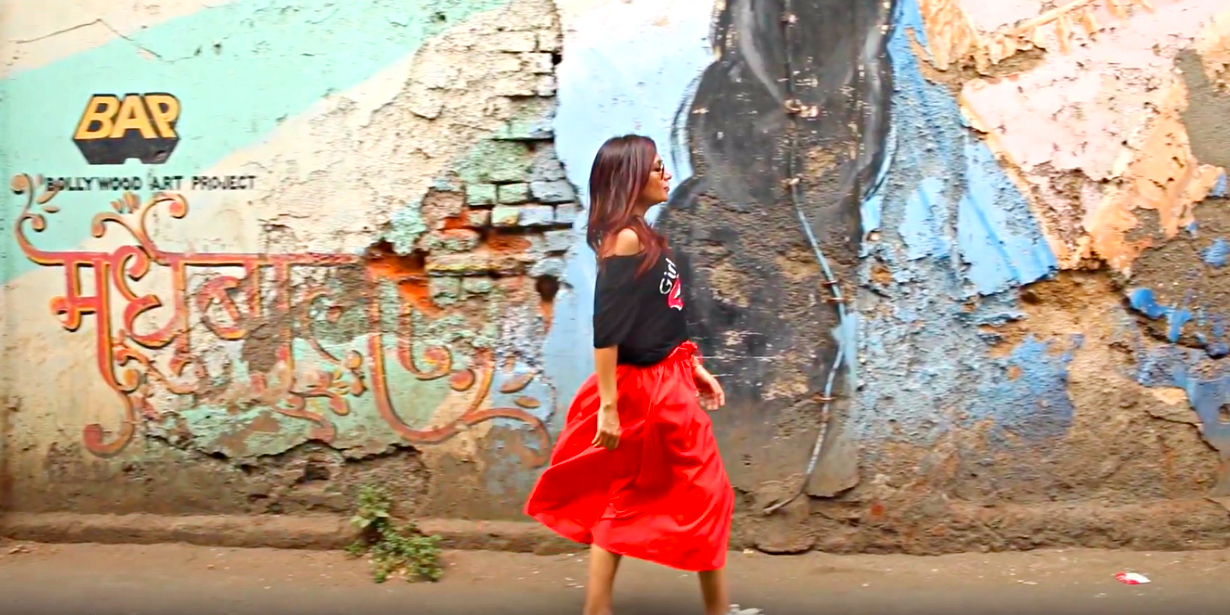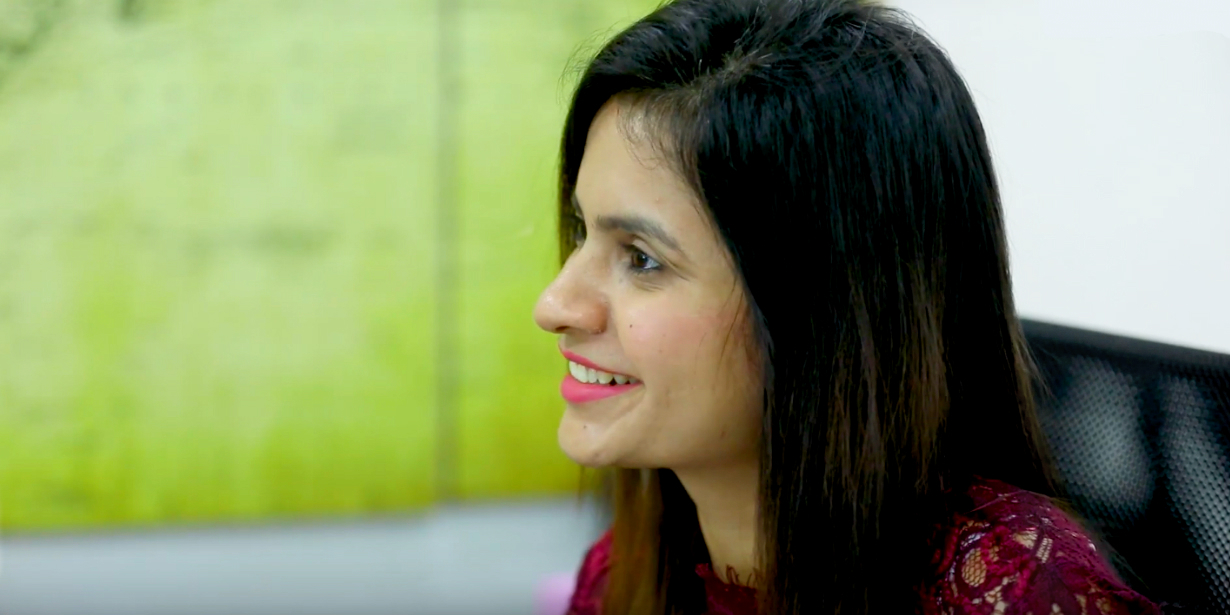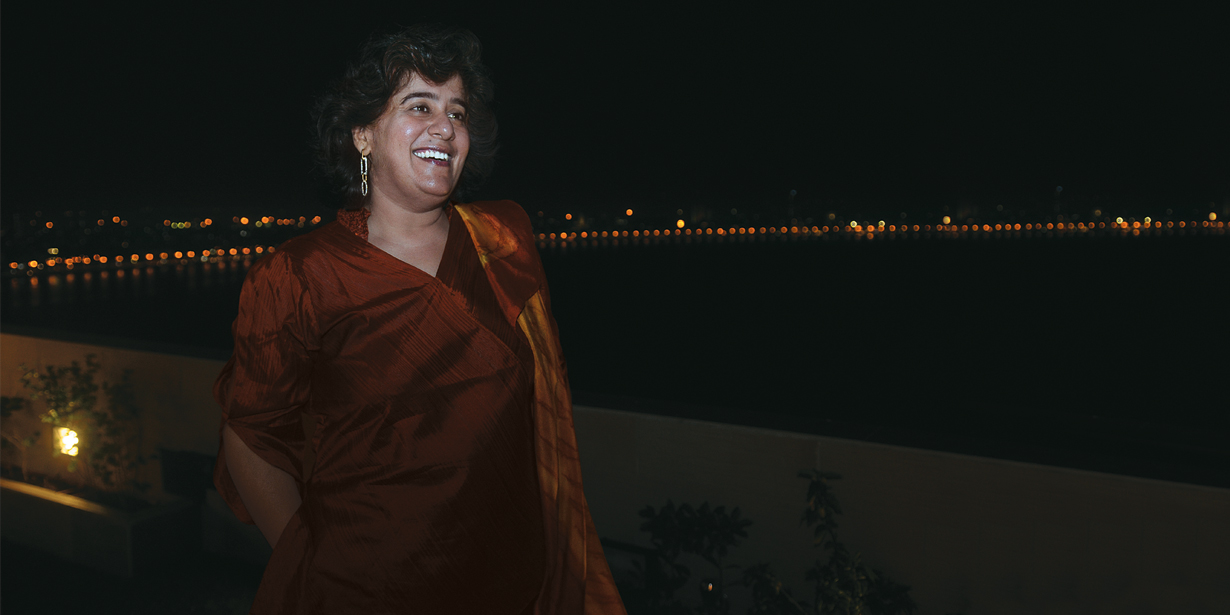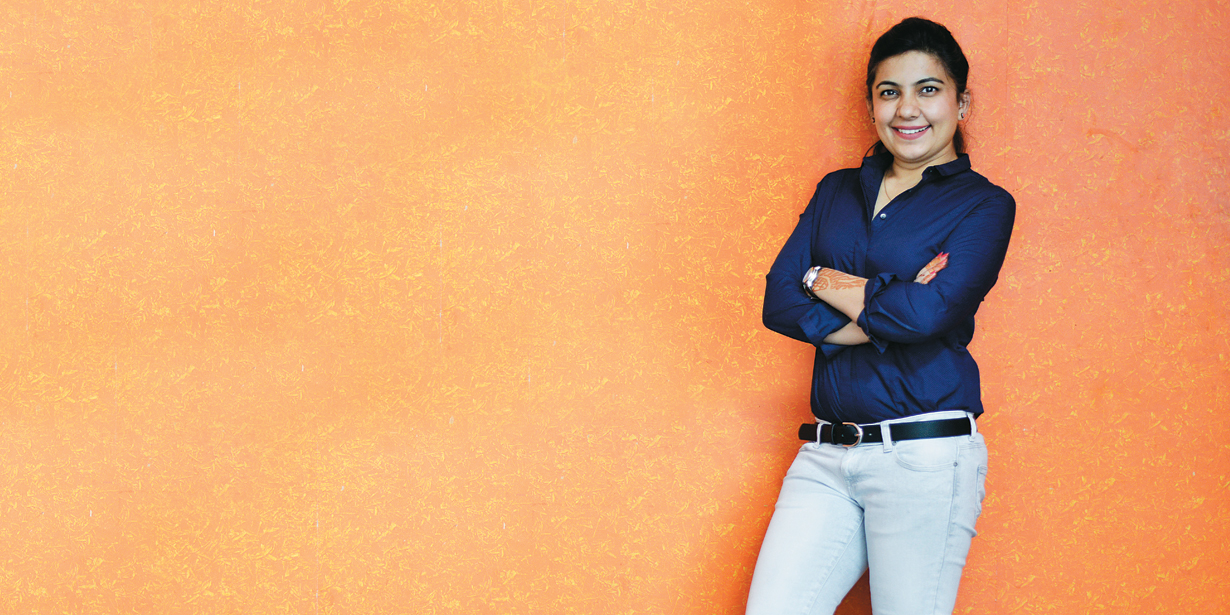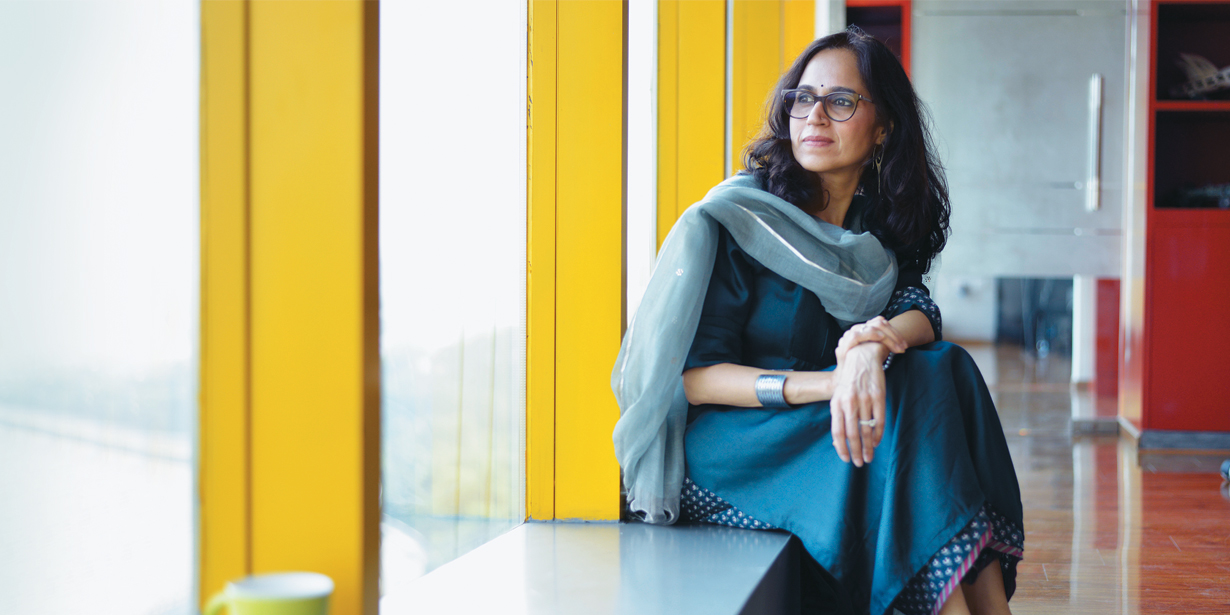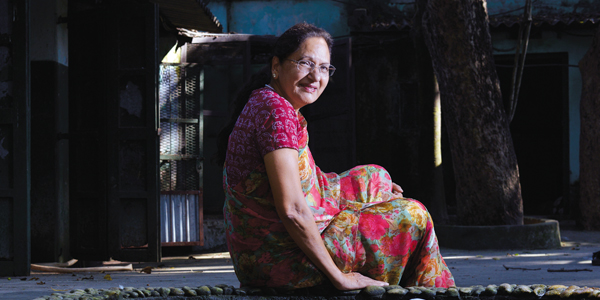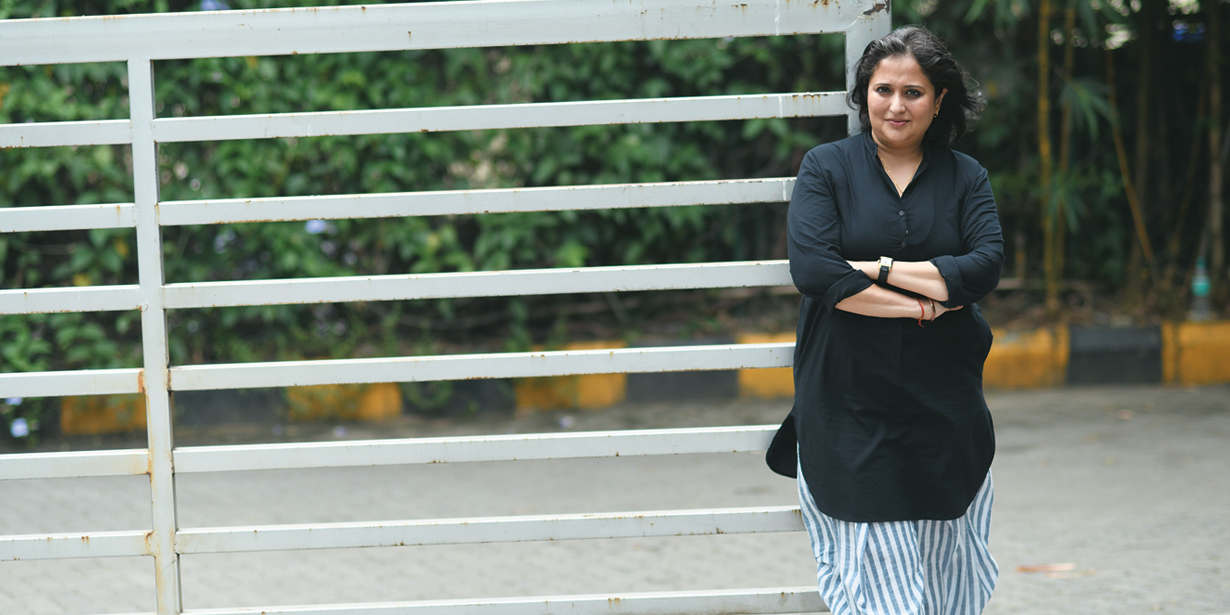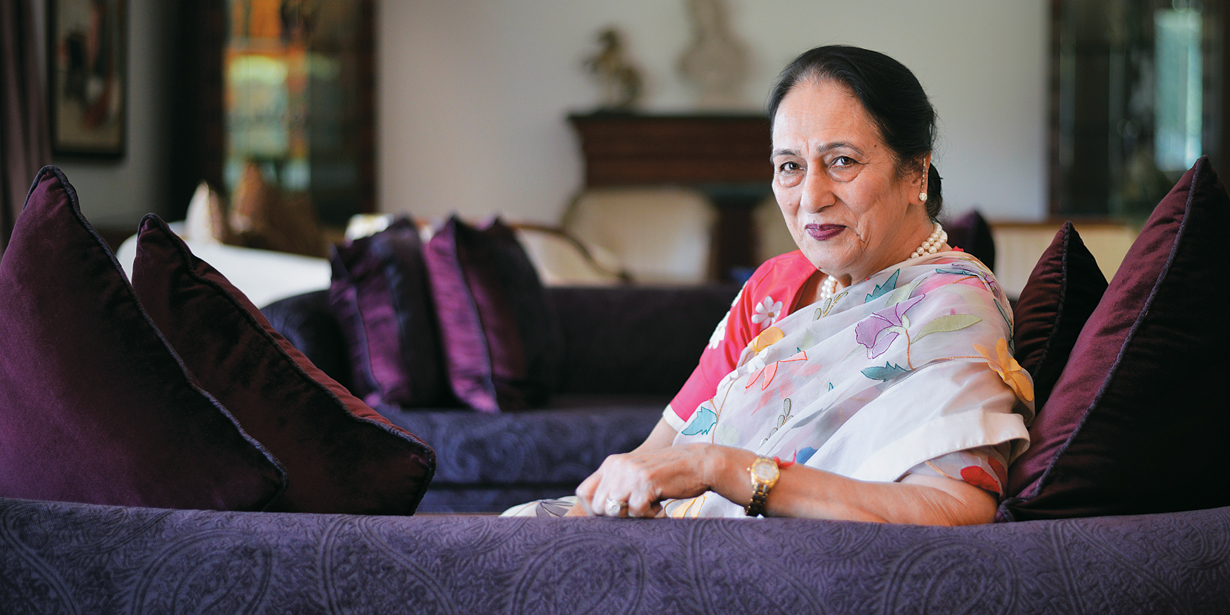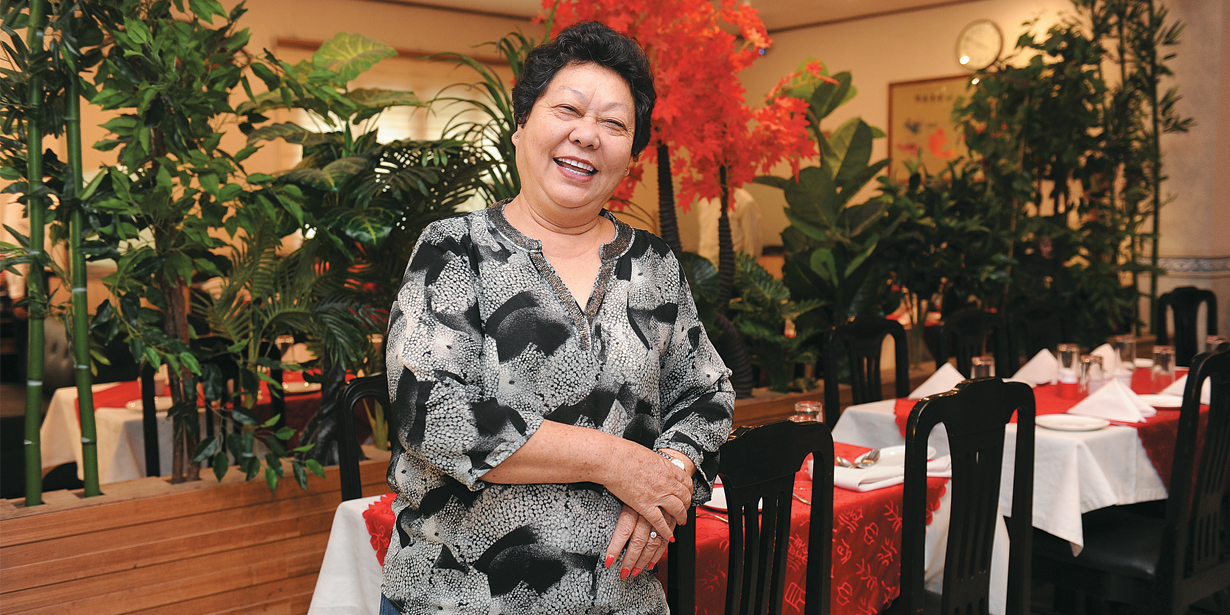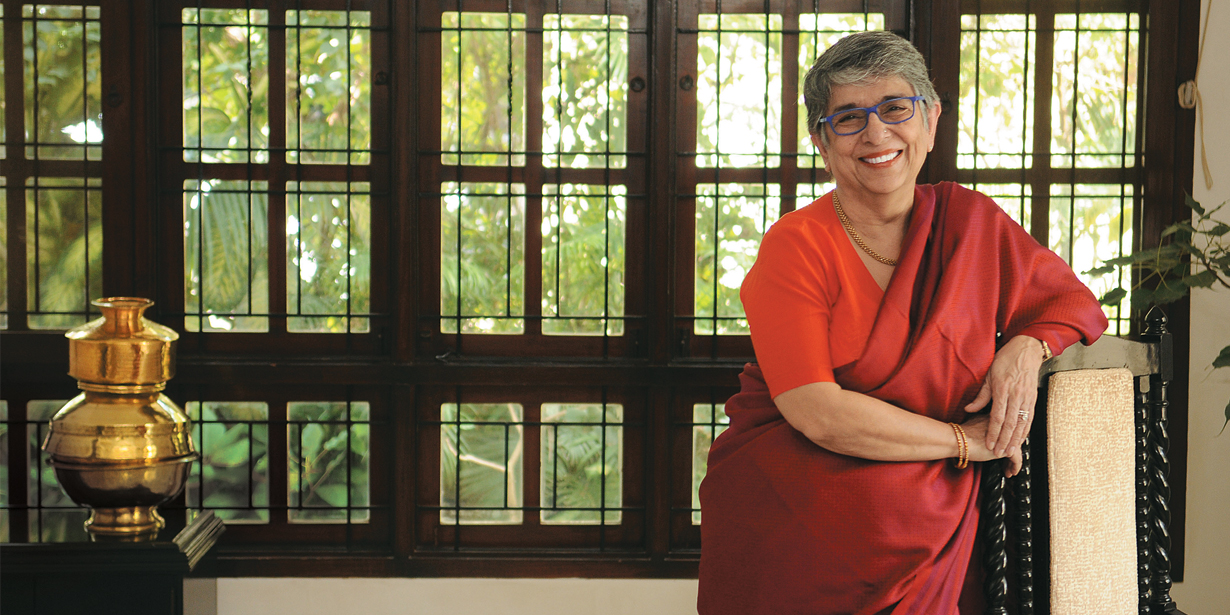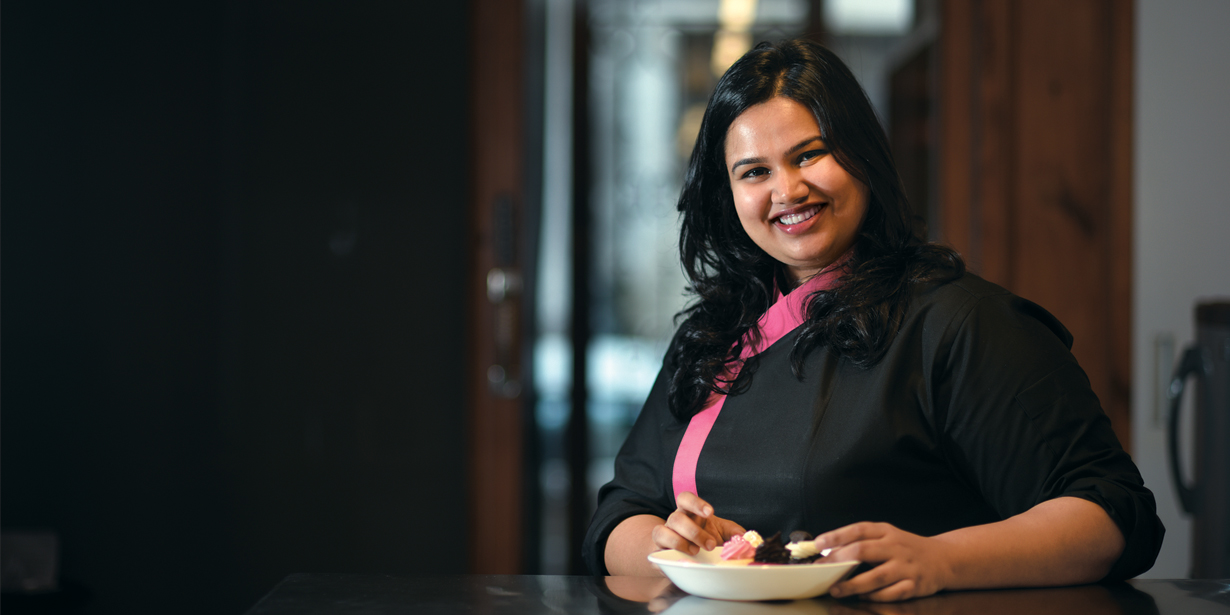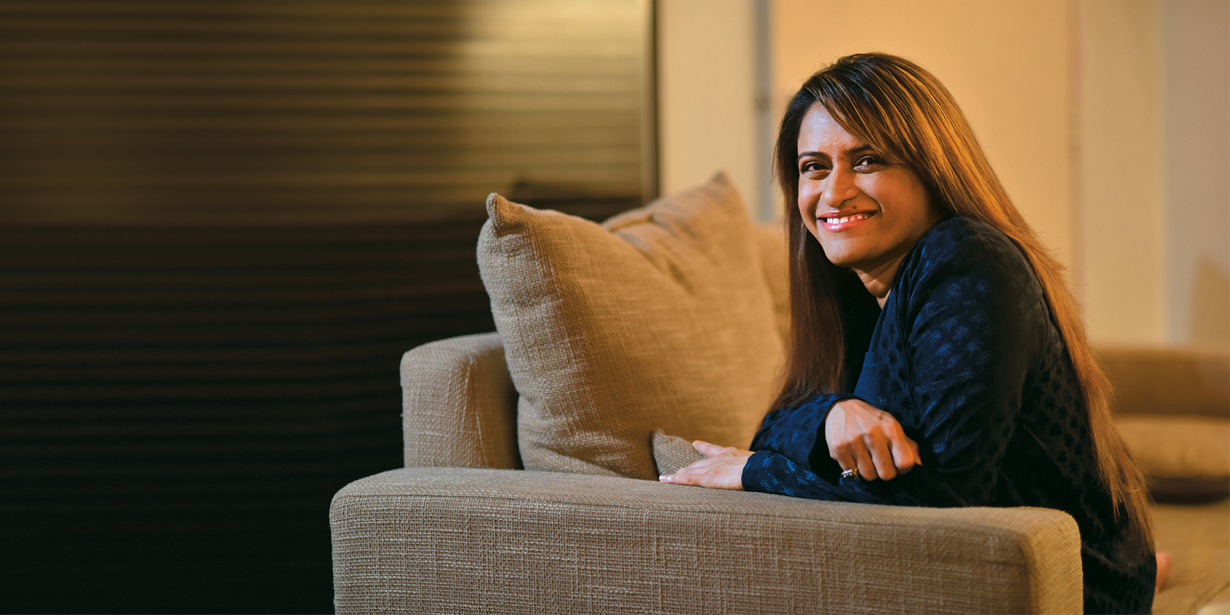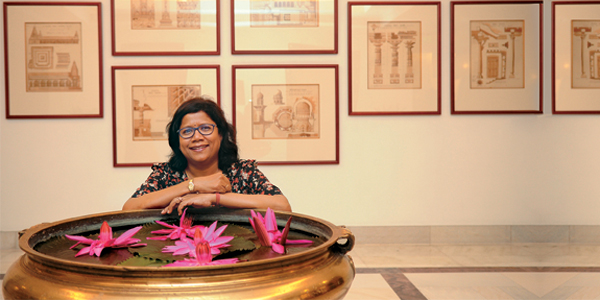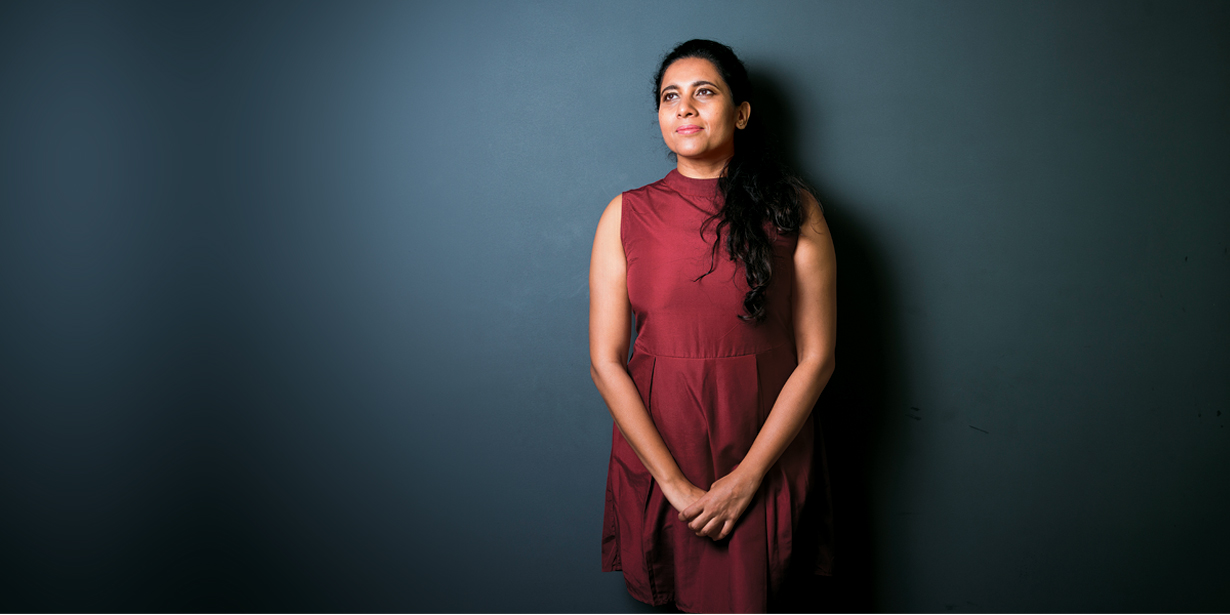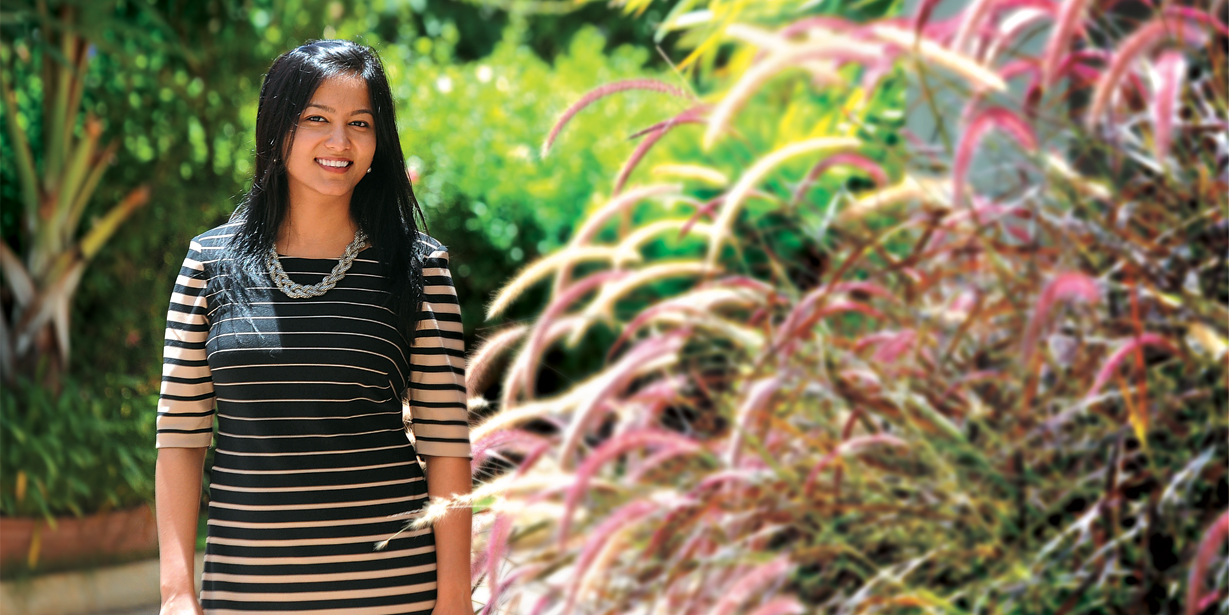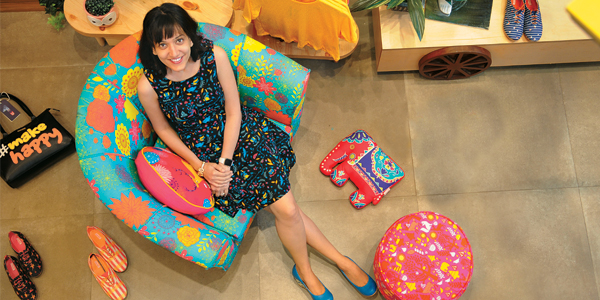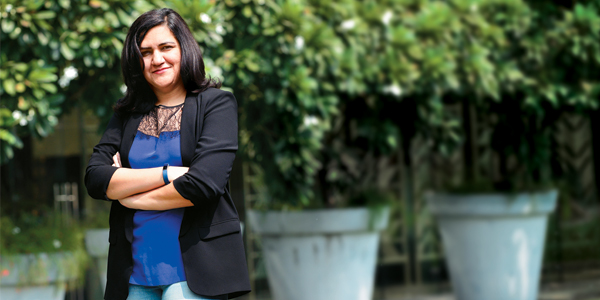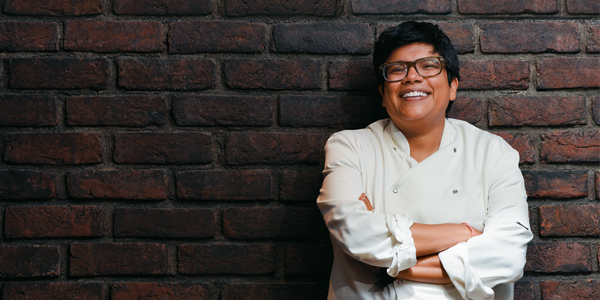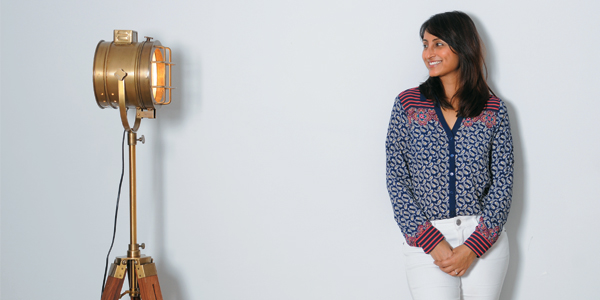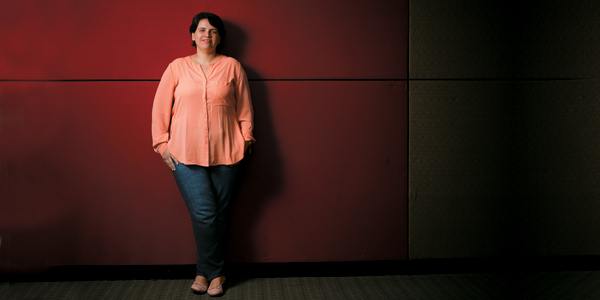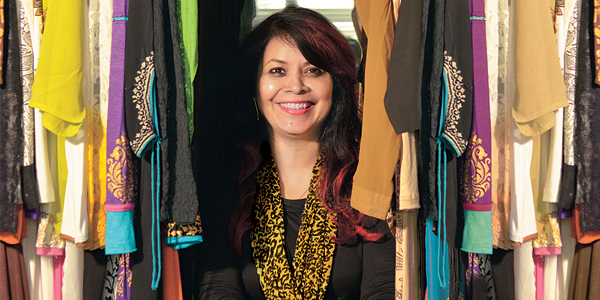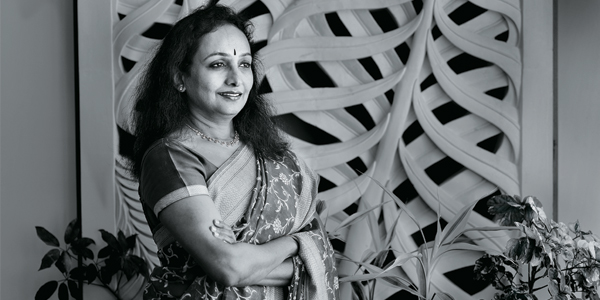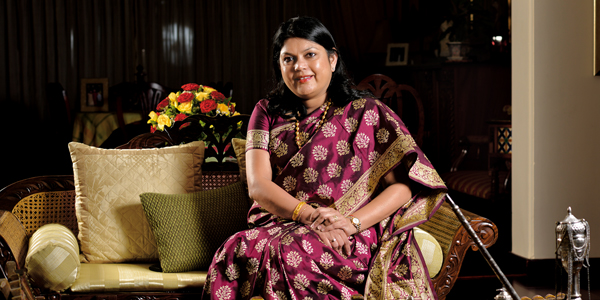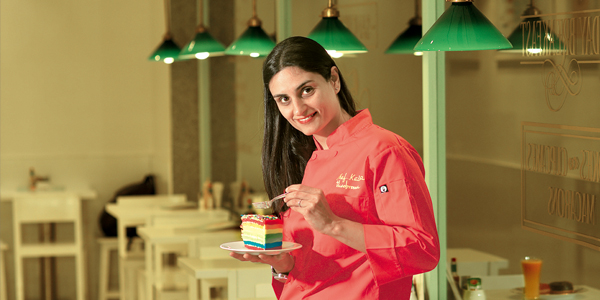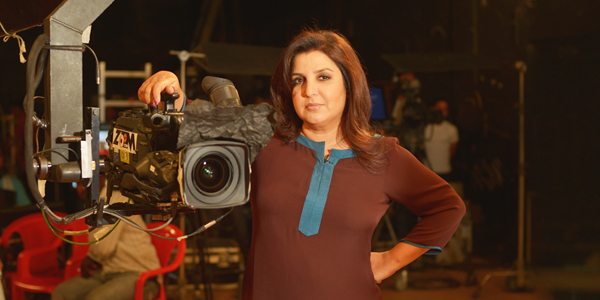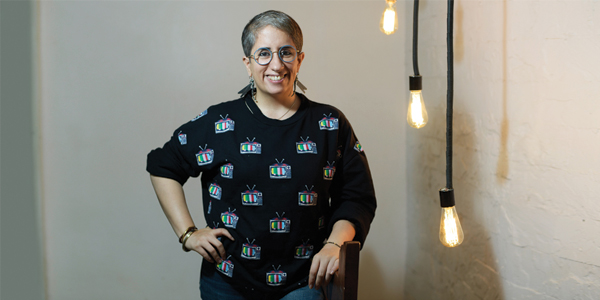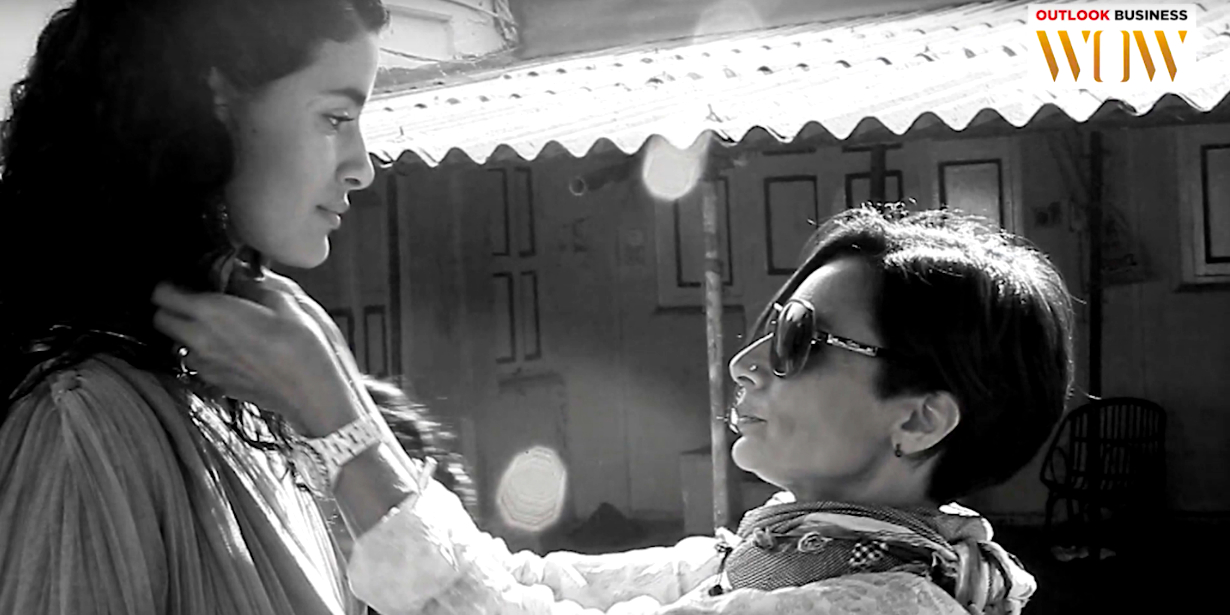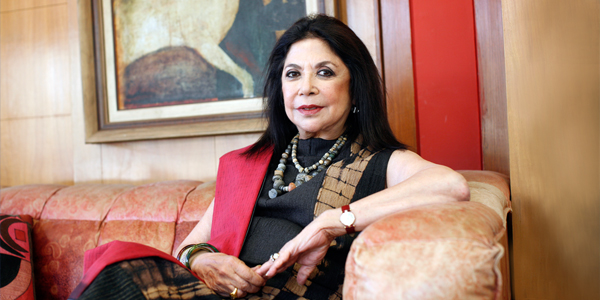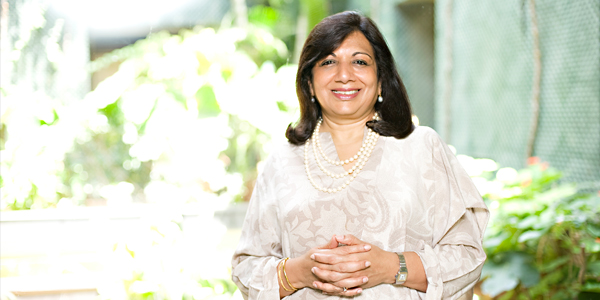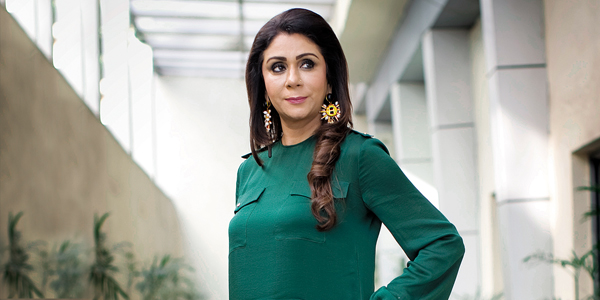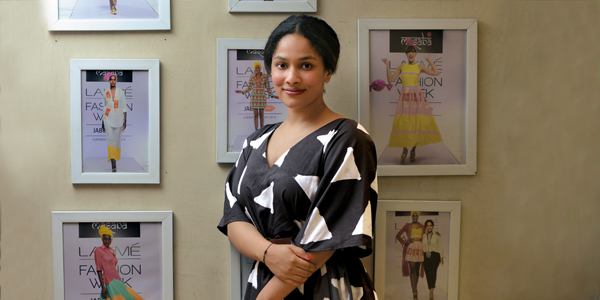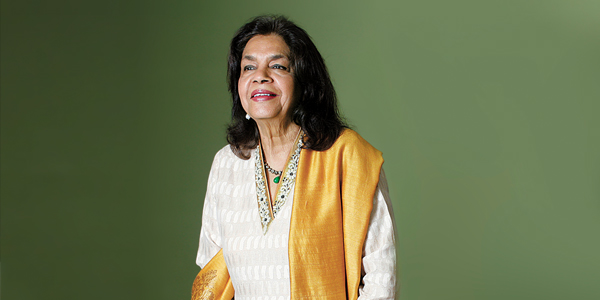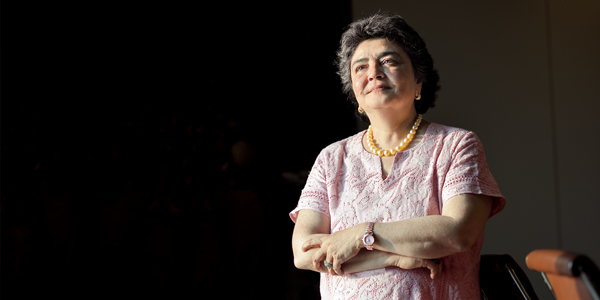Tragically losing her entire family, she inherited a “masculine” business and bred the highest number of derby winners ever: Meet Ameeta Mehra
Usha Stud Farm is a leading producer of derby-winning horses in India, owing to the fierceness of its owner Ameeta Mehra
“A woman needs to be twice as good as a man to be recognised in this world. I have been doubly good compared to my competitors,” emphasises Ameeta Mehra, as we chat at her stud farm at Pataudi in Haryana (100 km from Delhi). The photo frames on the walls bear testimony to this 53-year-old master horse breeder’s journey. She gets up and walks to the walls frequently, to point out her milestones. We then proceed to the lawn, not too far from where the horses are being mustered. Soon, they begin rolling (a form of exercise). And both the horses and their handlers look quite delighted upon spotting her.
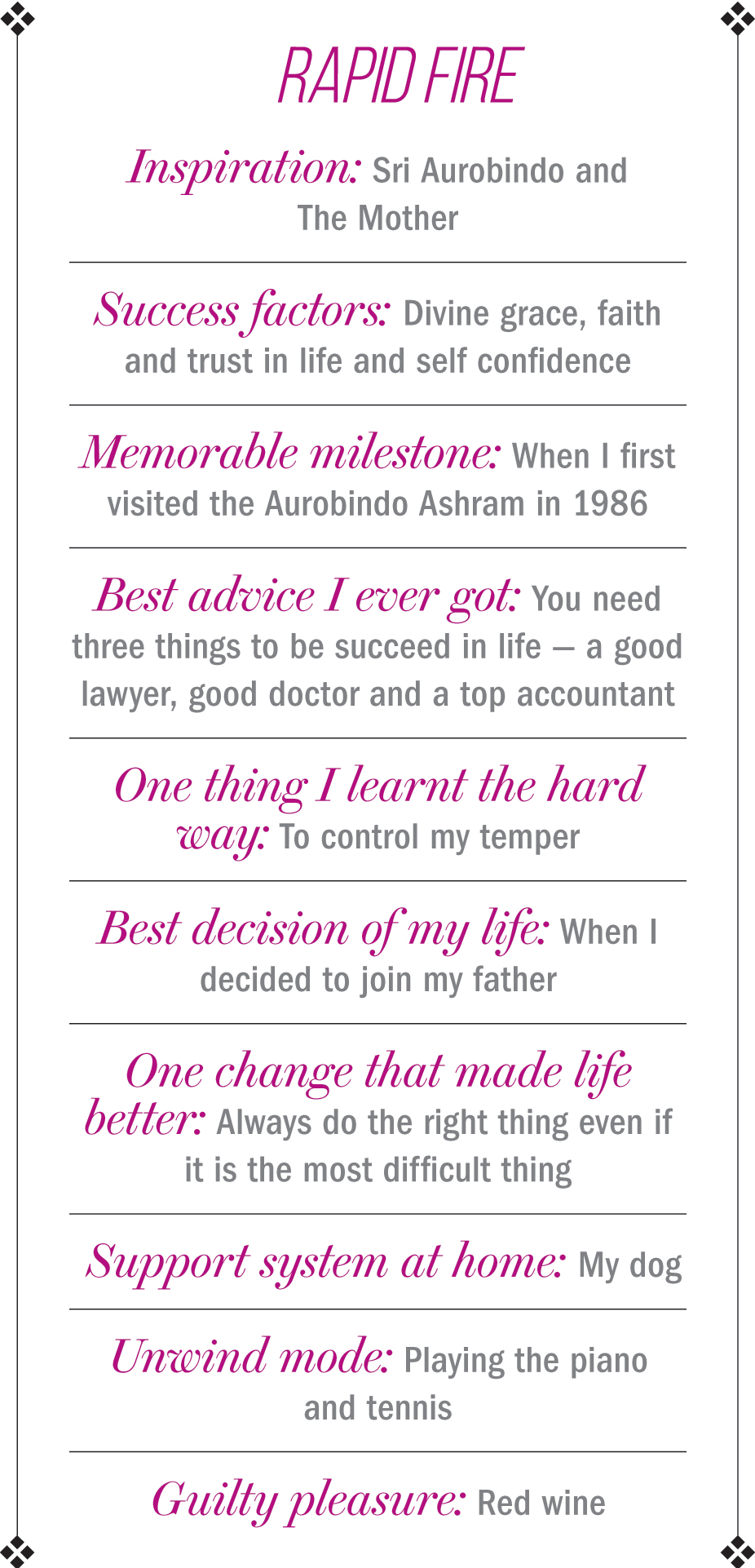 Early mount
Early mount
Mehra doesn’t recall any moment in her life without the horses being around. Her father, Major PK Mehra, was an international polo player in the army and an avid breeder. “Other people had pets like dogs and cats. I got on a horse at the age of two. My front garden had a Shetland pony and it had a little basket so that I don’t fall. By eight, I was a show jumper. My life was always intertwined with horses,” she narrates.
She attended Loreto Convent in Delhi till class 10 and then moved to Modern School. Post this, she graduated from the prestigious Lady Shriram College. Interestingly, when she turned 16, Mehra wanted to have nothing to do with horses. She rebelled against her father, who insisted she try her hand at running the farm he had set up. “I wanted to become an educationist and study the Vedas,” she recalls.
Unable to make her see things his way, Mehra’s father asked his daughter to make a choice — she had to either work on the farm or pursue social work and education. But, by then she had already joined Mirambika (Delhi-based free progress school) having followed Aurobindo and The Mother’s ideals. “I was the head of a UN youth international body too. I did a lot of social, philanthropic and spiritual studies at that time,” she explains. However, when quizzed by her father, Mehra evinced the desire to build a university focused on spiritual education.
When asked how she planned to do that on the salary of a teacher, the duo worked out a compromise. “My father said that if I joined the stud farm and produced an Indian Derby winner, he would allow me to shut the farm down and open a university. But first, you have to train yourself. I am your guru and father.” The pact was put on paper. “Though he was a tough taskmaster, I was confident of mastering things at the farm,” she adds.
To begin her formal training, she enrolled at the Irish National Stud in 1991, a premier institute for equine management. “I worked as a farm hand. You are paid for your work but it was pretty tough. At 5:30 in the morning you start, labour during the day and at 4 in the evening you have classes. I was a gold medalist, my project was on how to select thoroughbred stallions,” reveals Mehra. Post that, she went to the USA for three months to learn equine nutrition in 1993, from the world’s leading equine nutritionists Joe Pagan and Steven Jackson.
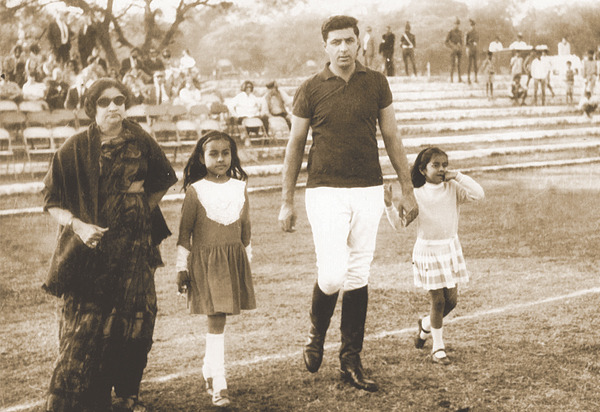
Having been exposed to international stud farms, Mehra took their best practices back home. “My dad started training me the old army way. I was enlisted as one of the farm hands and worked with them in the beginning. My dad would always say, ‘You are only as good as your last victory.’ I still keep that in my mind,” she reminiscences.
Rising up the ranks
The young apprentice developed a liking for her current stint and soon brought in fresh vigour to the process. “Earlier, they were not rolling the horses. At 4.30 in the morning, I’d roll the horses. Even if one person was slightly sleepy, I would pull him up for it. I would bond with them over a meal at the langar. At 11 am, there would be a horse darshan, wherein all the stallions would be lined up for an inspection,” she describes the rigorous routine she put in place. Mehra feels her exposure to spiritual education helped her manage the 150 people at the farm. “I had done a lot of work on how to motivate people. I started conducting classes for syces (those who look after horses) in the evening. I’d treat them like a football team. They became totally loyal and attrition dropped. I would tell them if we win the Indian Derby, you will get gifts and I continue the practice till date,” says Mehra.
Sensing her growing attachment for the farm, her father hinted that the time was right to produce a Derby winner; something the farm hadn’t managed in the past 10 years. Thanks to the change she brought in, Mehra was prepared to execute in record time. “It takes 8-10 years but I did it in four to five years after I joined the farm. In 1997, I produced my first Derby winner,” affirms a proud Mehra. Since the farm had won its last Derby in 1986, everybody was ecstatic. But, now it was time revisit the pact. Deep inside, Mehra didn’t want to shut down the farm. “My father said if you don’t want to close it down, I will give you 2.5 acres to build your university. He agreed to raise my salary from Rs.6,000 per month to Rs.100,000 and we didn’t close down the farm,” she smiles.
Testing times
By 1996, her father had become an NRI and spent most of his time in London. “He said my daughter is equal to 100 sons. He was proud and confident. Except for selling the horses, I handled the rest,” she says. But on January 8, 2001, tragedy struck. Both her parents and sister passed away in a helicopter crash. “It was a body blow. I lost everybody in one moment. Now I feel that my father must have had an intuition. He had trained me to take his job. Had I not been there, the stud farm would have shut down.”
Mehra recalls that period as the toughest of her life. “A month after I lost my family, there was an auction. I had never sold a horse before. There were 32 horses for sale. My stallions were highly sought after. But buyers assumed it would be a distress sale.” Luckily, her father had left a price list. “Initially, the buyers were making lower offers. I was devastated, and yet, would only say yes or no and not indulge in a bargain. I ended up selling every single horse at exactly the price my father had written. I refused to budge.”
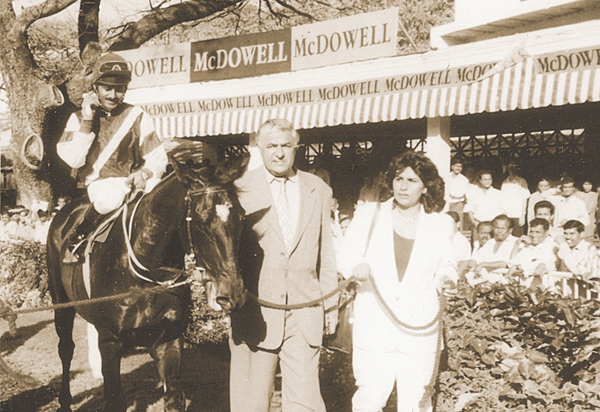
The buyers acted sympathetic that year but next year they formed a cartel. “My buyers decided I can’t demand the price my father could and if I did they won’t buy any horses from me. I had debts to repay but just when things were getting tough, a rumour about one of them breaking the agreement emerged and soon one by one they broke the cartel and started buying,” she says.
After years of toiling in a sheltered environment, Mehra was dealing with hardnosed businessmen. “They will push you to the corner if they have to and it is a highly male-dominated industry,” she says. She admits that she felt undervalued. “It was a gender issue. When we had winners, people said my father’s manager was running the show from behind. Unfortunately, my manager passed away in 2003,” she says. It was a few years later that after consistently producing results that she gradually gained acceptance. “They realised I was not a pushover.”
Leading the pack
Mehra says Usha Stud Farm has been a champion-producing institution every other year. No wonder, it has bred and produced 13 Derby winners in India, the highest for any farm. “Our next competitor (Poonawalla Farms) has eight, and the one after comes in with two winners.” Mehra claims she has the champion stallion of the country ‘Multidimensional’, whom she bought from the UK in 2009.
“In this industry you won’t get winners if you don’t select the right horse. Industry people used to say, ‘She has no idea how to do it. Her father selected breeding horses.’ I bought ‘Multidimensional’ for $1 million, which was unheard of in the industry. My competitors would pay only half of it. I had the guts to put my money where my mouth is,” says Mehra.
‘Multidimensional’ was a small horse. Nobody had a positive thing to say about him in the beginning. “The first crop from ‘Multidimensional’ started running in October 2012 and won the Indian Derby. It was also the end for our competition,” claims Mehra. Since then, Usha Stud Farm has left its next competitor Poonawallas way behind.
However, when it comes to the growth of the overall industry, things haven’t been rosy. In India, the horse breeding and racing industry has seen a decline in the past few years. “Recently in 2015, three of our biggest buyers went away. MAM Ramaswamy of Chettinad group and Deepak Khaitan of Eveready Industries died, and Vijay Mallya is absconding. MAM alone would buy 200 horses a year,” says Mehra.
Between the three of them, they used to buy 300-400 horses each year. So, the annual sale of horses is down to 1,100 now from 1,600 from some time ago. “In this scenario, I have also had to cut down on the numbers. My total revenue has taken a hit. Today, we produce 55 horses a year compared to 80 earlier. Everybody has taken a beating, I have been able to sustain pricing because of our quality,” she says. Around 20 stud farms have closed in the last five to seven years.
But through the ups and downs, Mehra has remained calm and sought answers from the divine whenever she is in a fix. “I rely deeply on the fact that there is a higher power that can guide you to do the right thing,” she says. Mehra feels that her journey has been all about choosing right over easy. “Only the dead fish go with the flow. I don’t want to be a dead fish. Irrespective of what the world says, I don’t give a damn about people. As long as it is true to my principles, I go about my own way of doing things.”
